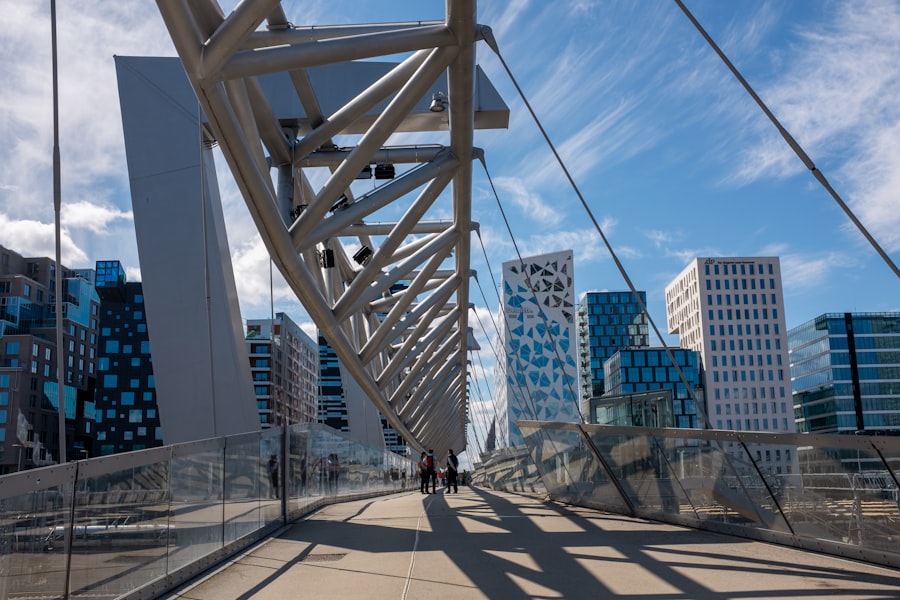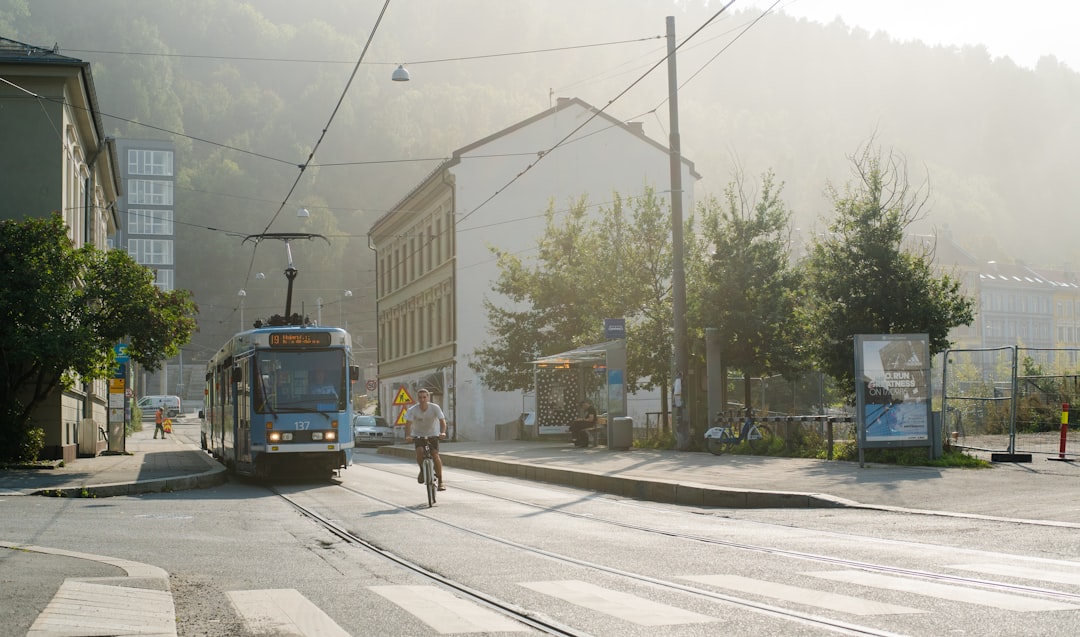The Norwegian school system is renowned for its inclusive approach and emphasis on holistic education. It is designed to foster not only academic excellence but also social skills, creativity, and critical thinking. For expatriate families moving to Norway, understanding this system is crucial for ensuring a smooth transition for their children.
The Norwegian education system is characterised by its egalitarian principles, where every child has the right to quality education, regardless of their background or circumstances. This commitment to equality is reflected in the way schools operate, making it an attractive option for families from diverse cultural backgrounds. In Norway, education is compulsory for children aged six to sixteen, encompassing primary and lower secondary education.
The system is structured to provide a well-rounded education that prepares students for both higher education and the workforce. As expatriate families navigate this new landscape, they will find that the Norwegian school system not only prioritises academic achievement but also values the development of personal and social skills. This article aims to provide a comprehensive overview of the Norwegian school system, focusing on its structure, admission processes, curriculum, and the unique challenges faced by expat children. Take the first step. Book a consultation with the Norway Relocation Group for your move to Norway. https://norwayrelocation.no/one-hour-strategy-session/
Summary
- The Norwegian school system is known for its high-quality education and emphasis on equality and inclusivity.
- The structure of the Norwegian school system is divided into three levels: primary school, lower secondary school, and upper secondary school.
- When choosing the right school for your child in Norway, it’s important to consider factors such as location, teaching approach, and extracurricular activities.
- The admission and enrollment process for expat children in Norwegian schools may require documentation and language proficiency tests.
- Norwegian schools follow a comprehensive curriculum and teaching methods that focus on practical learning and student engagement.
Understanding the Structure of the Norwegian School System
The Norwegian school system is divided into several key stages: primary education (Barneskole), lower secondary education (Ungdomsskole), upper secondary education (Videregående skole), and higher education. Primary education typically begins at age six and lasts for seven years, during which children are introduced to a broad range of subjects, including mathematics, science, language, and arts. The focus during these formative years is on fostering a love for learning and encouraging social interaction among peers.
Following primary education, students transition to lower secondary education, which lasts for three years. Here, the curriculum becomes more specialised, allowing students to explore subjects in greater depth. This stage is crucial as it prepares students for upper secondary education, where they can choose between academic or vocational tracks based on their interests and career aspirations.
The structure of the Norwegian school system is designed to be flexible, allowing students to pursue their passions while receiving a comprehensive education.
Choosing the Right School for Your Child

Selecting the right school for your child in Norway can be a daunting task, especially for expatriate families unfamiliar with the local education landscape. There are various types of schools available, including public schools, private schools, and international schools. Public schools are funded by the government and are free of charge, while private schools may charge tuition fees and often have specific educational philosophies or curricula.
International schools cater specifically to expatriate families and typically offer curricula from other countries, such as the International Baccalaureate (IB) or British A-levels. When choosing a school, parents should consider factors such as location, language of instruction, extracurricular offerings, and the school’s overall ethos. It is also essential to visit potential schools and meet with teachers and administrators to gain insight into their teaching methods and community environment.
Engaging with other expatriate families can provide valuable recommendations and experiences that can help inform your decision. Ultimately, finding a school that aligns with your child’s needs and interests will contribute significantly to their educational experience in Norway.
Admission and Enrollment Process for Expat Children
The admission process for expatriate children in Norwegian schools can vary depending on the type of school chosen. For public schools, enrolment typically occurs in the spring before the academic year begins in August. Parents must register their child with the local municipality, providing necessary documentation such as proof of residency and previous school records.
It is advisable to start this process early to ensure a smooth transition. For international schools or private institutions, the admission process may involve additional steps such as interviews or assessments to determine the child’s suitability for the school’s curriculum. These schools often have specific deadlines for applications, so it is crucial for parents to be aware of these timelines.
Additionally, some international schools may offer language support programmes to help non-Norwegian speaking children acclimatise to their new environment. Understanding these processes will help expatriate families navigate the complexities of enrolling their children in Norwegian schools.
Curriculum and Teaching Methods in Norwegian Schools
The curriculum in Norwegian schools is designed to be broad and inclusive, focusing on developing critical thinking skills alongside academic knowledge. Core subjects include mathematics, science, social studies, language arts, and physical education. In addition to these subjects, there is a strong emphasis on arts and culture, reflecting Norway’s rich heritage.
The teaching methods employed in Norwegian schools are often student-centred, encouraging active participation and collaboration among students. Teachers in Norway are trained to create an engaging learning environment that promotes curiosity and exploration. This approach allows students to take ownership of their learning journey while developing essential life skills such as teamwork and communication.
Furthermore, there is a significant focus on outdoor learning and environmental awareness, with many schools incorporating nature-based activities into their curriculum. This holistic approach not only nurtures academic growth but also fosters a sense of responsibility towards the community and the environment.
Support for Expat Children in Norwegian Schools

Expat children may face unique challenges when adapting to a new educational system, particularly if they are not fluent in Norwegian. To address these challenges, many Norwegian schools offer support services tailored specifically for non-native speakers. Language support programmes are designed to help expat children improve their Norwegian language skills while integrating them into the classroom environment.
In addition to language support, schools often provide counselling services to assist students in navigating cultural differences and emotional adjustments. Teachers are trained to recognise the signs of stress or anxiety in students who may be struggling with their new surroundings. By fostering an inclusive atmosphere where diversity is celebrated, Norwegian schools aim to ensure that all students feel valued and supported throughout their educational journey.
Extracurricular Activities and After-School Programs
Extracurricular activities play a vital role in enhancing the educational experience for students in Norway. Schools often offer a wide range of clubs and activities that cater to various interests, including sports, music, arts, and technology. These programmes not only provide students with opportunities to explore their passions but also encourage social interaction and teamwork outside of the classroom.
After-school programmes are also available in many schools, providing additional support for working parents while offering children a safe environment to engage in recreational activities. These programmes often include homework assistance, sports practice, or creative workshops that allow children to develop new skills and friendships. For expatriate families, participating in extracurricular activities can be an excellent way for children to integrate into their new community while building confidence and resilience.
Assessment and Grading in Norwegian Schools
Assessment in Norwegian schools is designed to be constructive rather than punitive. The focus is on continuous evaluation rather than high-stakes testing; teachers assess students’ progress through various methods such as projects, presentations, and class participation. This approach allows educators to gain a comprehensive understanding of each student’s strengths and areas for improvement.
Grading in Norway typically follows a scale from A to F, with A being the highest grade and E being the minimum passing grade. However, it is important to note that grades are not the sole measure of success; teachers also provide qualitative feedback that helps students understand their learning journey better. This emphasis on formative assessment encourages students to take an active role in their education while fostering a growth mindset.
Parental Involvement in the Norwegian School System
Parental involvement is highly encouraged within the Norwegian school system. Schools often organise meetings and events where parents can engage with teachers and participate in discussions about their child’s progress. This collaborative approach fosters a strong partnership between parents and educators, ultimately benefiting the child’s educational experience.
Moreover, many schools have parent-teacher associations (PTAs) that allow parents to contribute actively to school activities and initiatives. These associations provide an excellent platform for parents to connect with one another while supporting their children’s education. For expatriate families, getting involved in these associations can help build a sense of community and belonging within their new environment.
Challenges and Adjustments for Expat Children in Norwegian Schools
While the Norwegian school system offers numerous benefits, expatriate children may encounter challenges as they adjust to their new surroundings. Language barriers can be particularly daunting for non-Norwegian speakers; however, many schools provide language support programmes designed to help students overcome these obstacles. Cultural differences may also pose challenges as expat children navigate new social dynamics within the classroom.
They may feel isolated or struggle to make friends initially; however, schools often promote inclusivity through various initiatives aimed at fostering friendships among students from diverse backgrounds. Encouraging open communication between parents and teachers can help address any concerns that arise during this adjustment period.
Resources and Support for Expat Parents Navigating the Norwegian School System
Expat parents seeking guidance on navigating the Norwegian school system have access to various resources designed to assist them during this transition. Local expat communities often provide valuable information about schools in the area as well as tips on how best to support their children’s education. Additionally, many municipalities offer resources specifically tailored for expatriate families, including information on enrolment procedures and language support services available within local schools.
Online forums and social media groups can also serve as platforms for parents to share experiences and seek advice from others who have successfully navigated similar challenges. For those looking to enhance their children’s language skills further or immerse them more deeply into Norwegian culture, enrolling them in courses at institutions like the NLS Norwegian Language School in Oslo can be immensely beneficial. The NLS offers tailored courses designed specifically for expatriates aiming to learn Norwegian effectively while integrating into society seamlessly.
With experienced instructors who understand the unique needs of expat learners, NLS provides an excellent opportunity for children (and adults) alike to gain confidence in their language abilities while making new friends along the way. In conclusion, understanding the intricacies of the Norwegian school system is essential for expatriate families seeking a smooth transition into this new educational landscape. By familiarising themselves with its structure, admission processes, curriculum offerings, and available support services—alongside engaging with resources like NLS—parents can ensure that their children thrive academically while embracing all that Norway has to offer.
Learn more about the Norwegian classes at the NLS Norwegian Language School in Oslo

